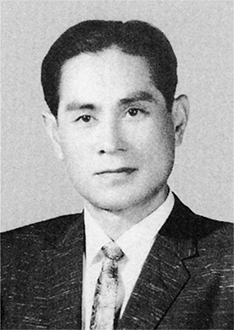The prophet Malachi foretold that Elijah would come again: “Behold, I will send you Elijah the prophet before the great and terrible day of the Lord comes” (Mal. 4:5).
Jesus testified that the prophesied coming of Elijah was realized in none other than John the Baptist: “I tell you that Elijah has already come, and they did not know him, but did to him whatever they pleased. . . .” Then the disciples understood that he was speaking to them of John the Baptist (Matt. 17:12-13).
Nevertheless, John the Baptist did not recognize himself to be the second coming of Elijah (John 1:21), and neither did the Jewish people. John’s ignorance reinforced his doubts about Jesus (Matt. 11:3). Since many Jewish people esteemed John the Baptist, they respected John’s point of view. This exacerbated their disbelief in Jesus. John’s ignorance was a major factor in compelling Jesus to go the way of the cross.
During the period of the united kingdom, God’s ideal for His holy Temple was thwarted by Satan through the transgressions of King Solomon (cf. Parallels 3). To restore the Temple and pave the way for the advent of the Messiah, who is the incarnation of the Temple, God sent four major and twelve minor prophets to Israel and worked through them to purify Israel of all satanic influences. Besides these, God sent the prophet Elijah to confront the prophets of Baal on Mt. Carmel; he defeated them with the power of God and cast down their altars to Baal.
However, Elijah ascended to heaven in a whirlwind and a fiery chariot (II Kings 2:11) before he could complete his divine mission. Satan’s power revived and continued to plague God’s providence. The way of the Messiah could not be made straight until Satan’s influence was removed. Hence, before Jesus could realize the ideal of the incarnate Temple, another prophet should inherit and complete Elijah’s unfinished mission of breaking people’s ties with Satan. Due to this providential necessity, the prophet Malachi foretold that Elijah would come again (Mal. 4:5).
The Jewish people who believed in the prophecies of Scripture fervently hoped for the advent of the Messiah. Yet we should know that they longed just as eagerly for the return of Elijah. This was because God had clearly promised through the prophet Malachi that He would send the prophet Elijah prior to the advent of the Messiah to prepare the way of the Lord. Elijah had ascended to heaven about 850 years before the birth of Jesus; since then he has abided in the spirit world. We are familiar with the story of the Transfiguration, when Elijah and Moses spiritually appeared before the disciples of Jesus (Luke 9:28-36).
Many Jews believed that when Elijah came again he would descend from heaven in the same manner as he had ascended to heaven. Just as there are Christians today who are resolutely looking to the sky with the expectation that Jesus will come in the clouds, Jews of Jesus’ day were looking up at the sky, anxiously awaiting the coming of Elijah.
Nevertheless, before any news was heard about Elijah having come again to fulfill Malachi’s prophecy, Jesus suddenly appeared and claimed to be the Messiah. It is no wonder that Jesus’ appearance and proclamation stirred up all of Jerusalem in great confusion.
Wherever Jesus’ disciples went, they were bombarded with the question about Elijah, who was supposed to come first. Lacking an adequate answer themselves, the disciples turned to Jesus asking, “Then why do the scribes say that first Elijah must come?” (Matt. 17:10). Jesus replied that John the Baptist was the very Elijah whom the people were awaiting (Matt. 17:12-13).
Since the disciples already believed that Jesus was the Messiah, they willingly accepted his testimony that John the Baptist was Elijah. Yet how could others who did not know Jesus accept this controversial claim? Jesus himself expected that they would not readily believe it, and hence he said, “If you are willing to accept it, he is Elijah who is to come” (Matt. 11:14).
What made it even more difficult for the Jewish people to believe in Jesus’ proclamation was the earlier denial by John the Baptist. John had insisted he was not Elijah: “And they asked him, ‘What then? Are you Elijah?’ He said, ‘I am not'” (John 1:21).




